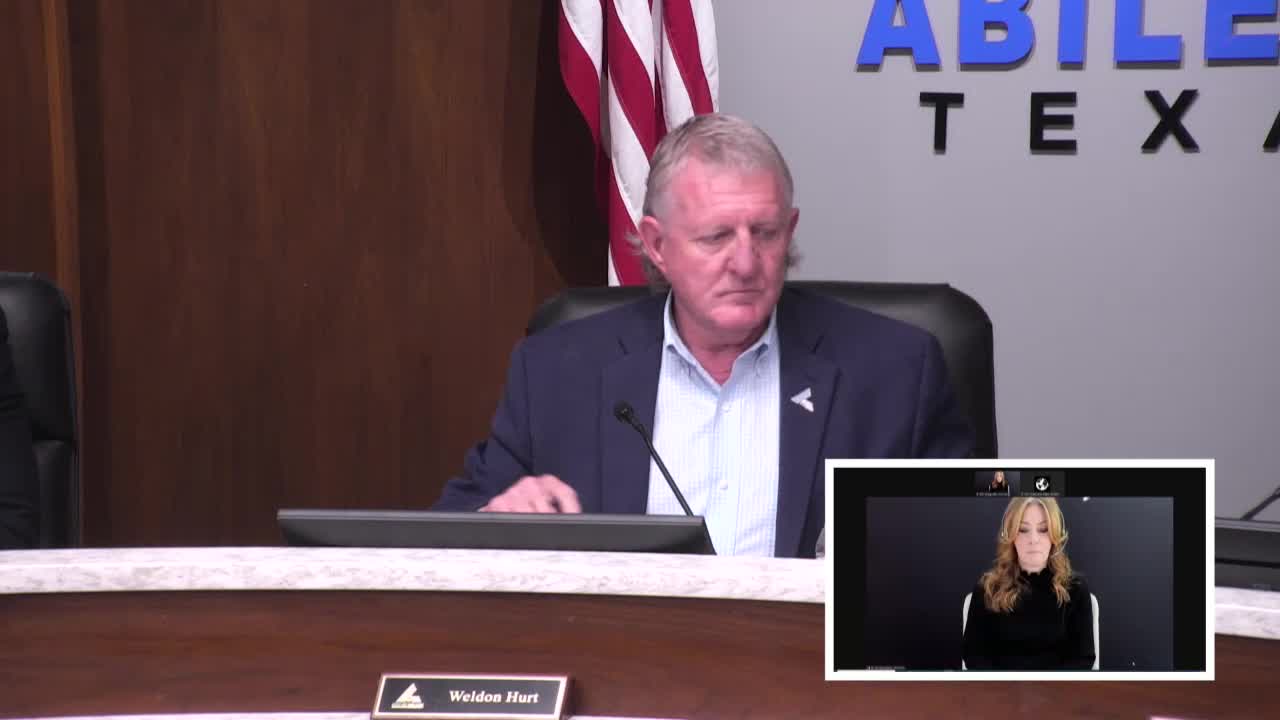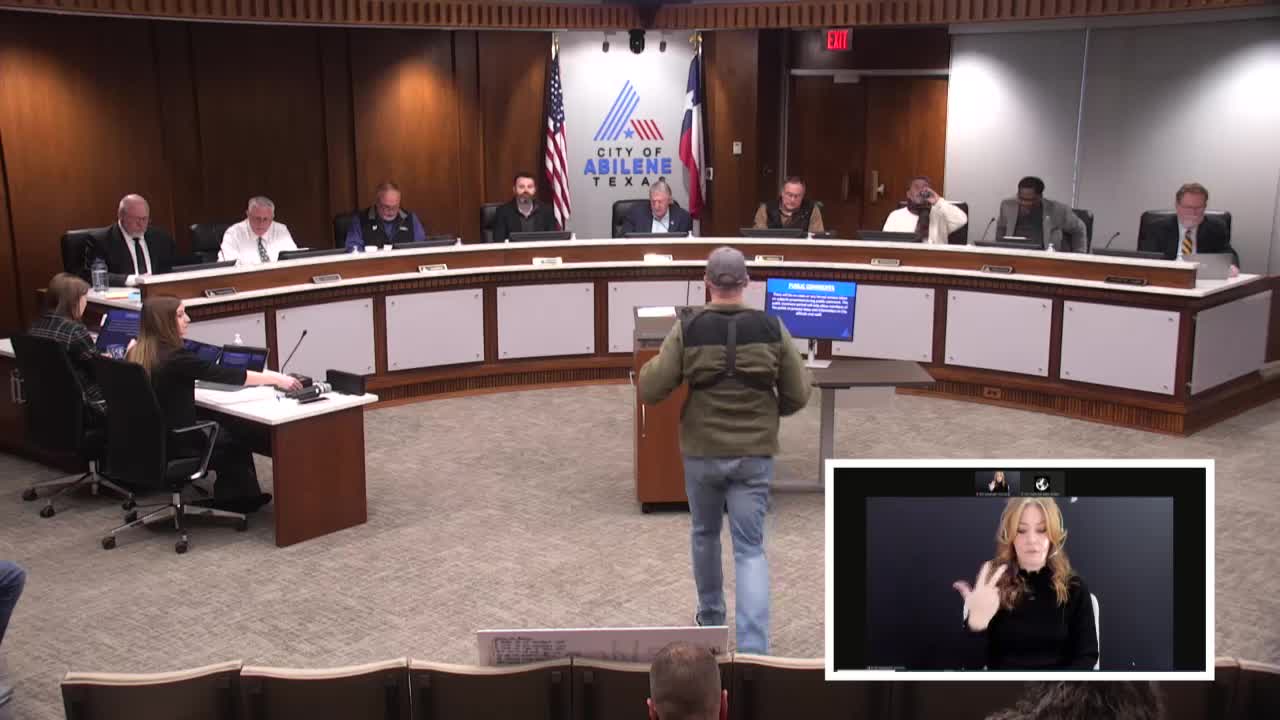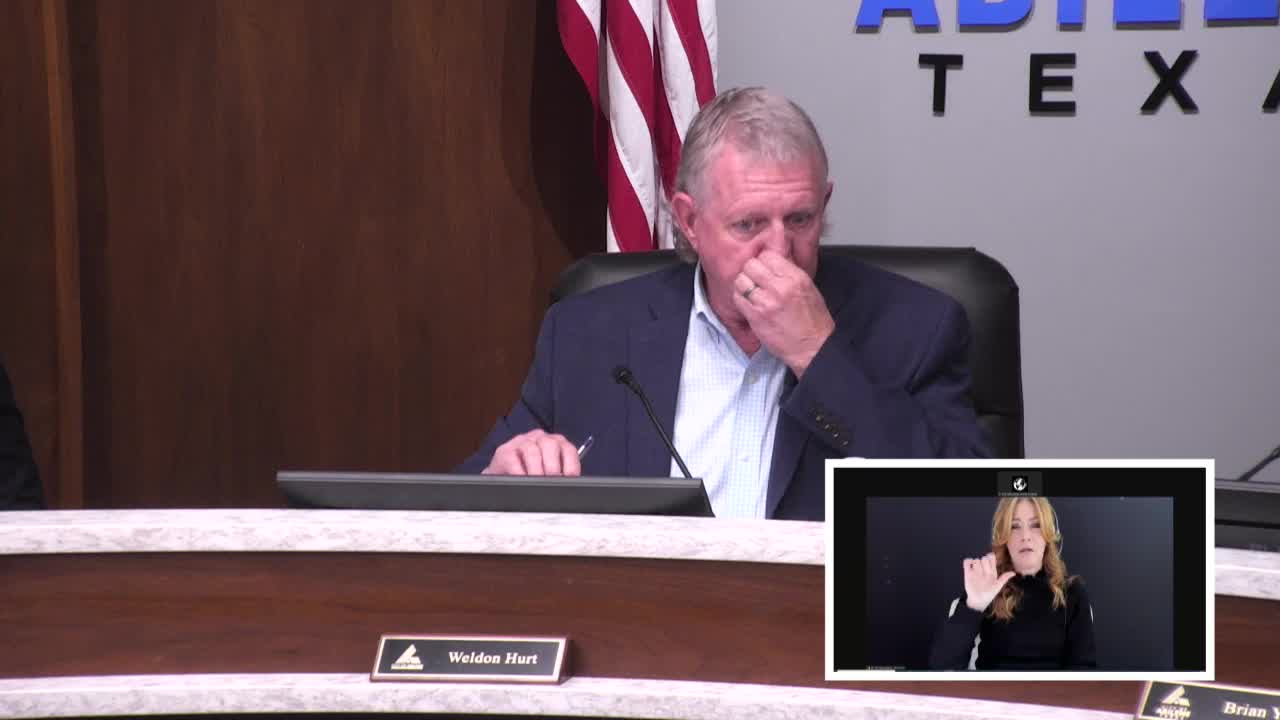Article not found
This article is no longer available. But don't worry—we've gathered other articles that discuss the same topic.

Abilene council approves annexation, zoning and conditional-use requests; multiple items pass by unanimous or near-unanimous votes

Resident tells Abilene council Rise Church discipleship homes house dozens, urges public hearing and investigation

